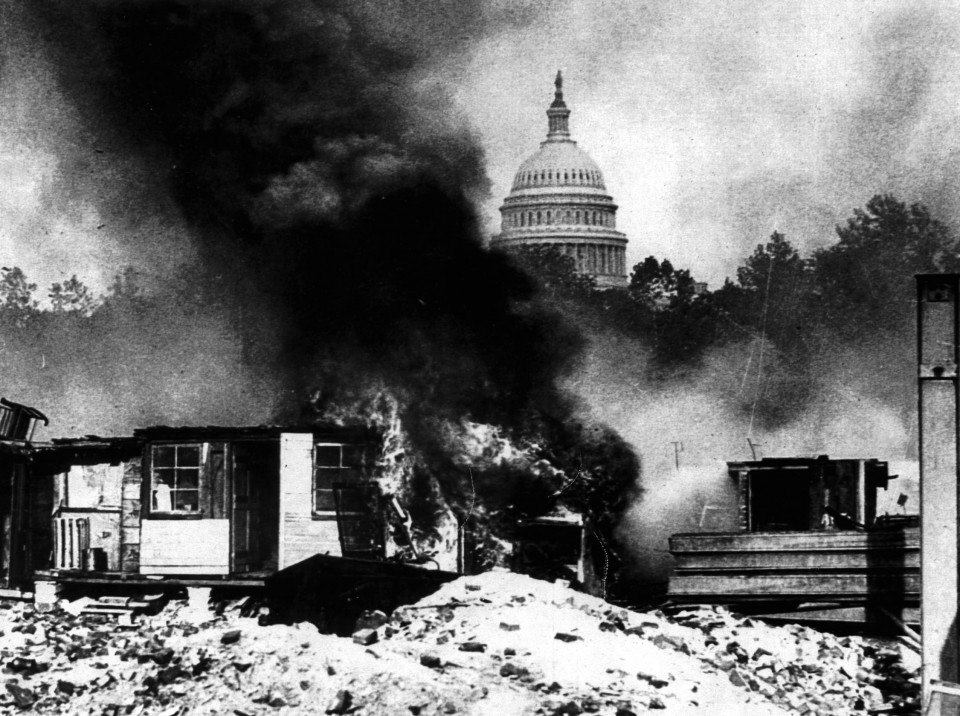The Bonus Expeditionary Forces of 1932

In 1924, five years before the stock market crash of 1929 and the subsequent decade-long Great Depression, congress enacted the World War Adjusted Compensation Act, which awarded World War One veterans a certificate of payment not to be redeemed until 1948.
When the Great Depression stripped many of these veterans of jobs and a roof over their heads, approximately 43,000 veterans and their families descended upon Washington DC to demonstrate for early payment of their certificates.
The Battle of The Bonus Army
Known as the Bonus Army, Bonus Marchers or the Bonus Expeditionary Forces, the protesters established a Hooverville or shantytown along the banks of the Anacostia River in central Washington.
While many Americans unfairly blamed President Herbert Hoover for worsening the Great Depression through inadequate economic policy, on July 28th, he further tanked his reputation by ordering the Bonus Marchers forcefully removed from government land. In response, Army Chief of Staff General Douglas MacArthur and his subordinate understudies George S. Patton and Dwight D. Eisenhower led a contingent of 500 infantrymen and 500 cavalrymen, 6 M1917 light tanks and 800 policemen into the Bonus Marcher’s Hooverville, unleashing tear gas and fire arms when the protesters refused to leave their encampment.
Just as the veterans had endured mustard gas attacks in the trenches of Europe, this time the gassing would be delivered by their own countrymen. Two veterans would die the next day from gunshot wounds received by over-zealous police officers, while a total of 1,017 veterans and their wives and children would be injured.
Once the Bonus Marchers were successfully routed from their encampment, their dwellings and personal belongings were summarily burned to the ground. After news of the violence spread throughout the country, Americans were largely horrified by the violent treatment applied to these once heroic veterans of World War One, further eroding Hoover’s image as a compassionate leader. Three months later, he would be voted out of office when Franklin D. Roosevelt captured 57.4 percent of the popular vote, carrying 42 states and nearly 88 percent of the Electoral vote.
